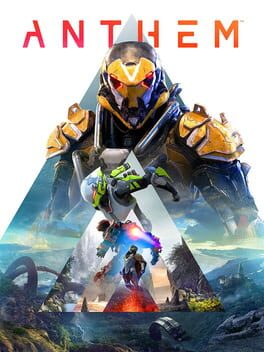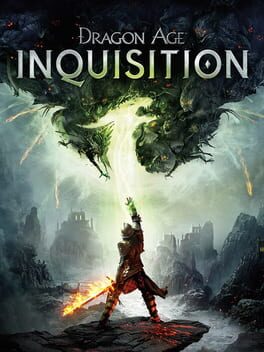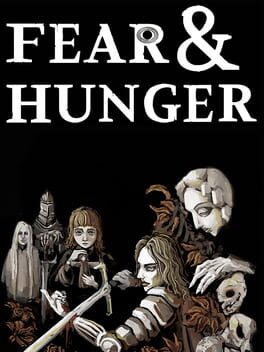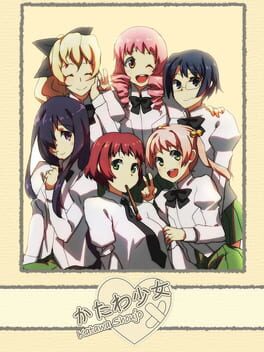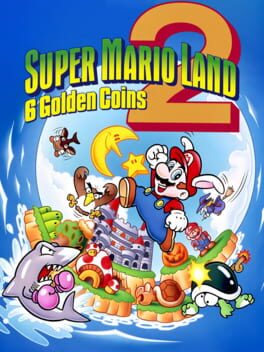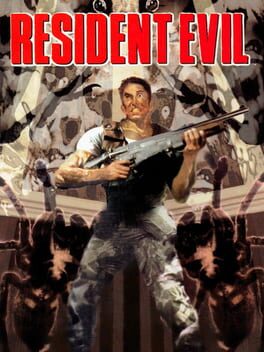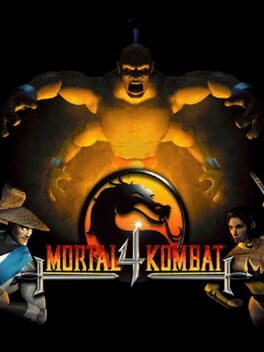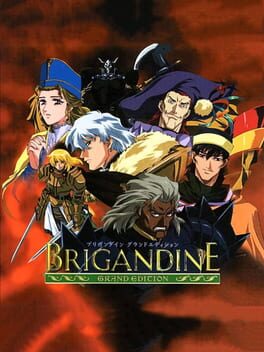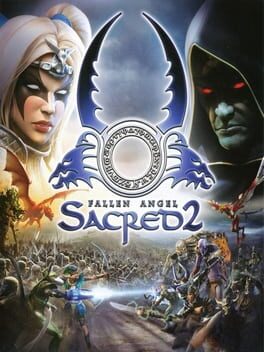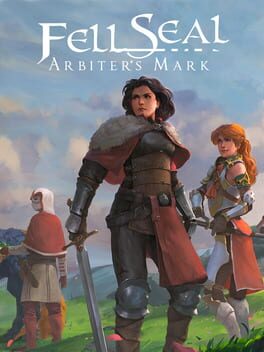Heretick
2019
Did Anthem cause COVID?
An Investigation
After my previous "review" (If you can call these eternal nightmares I am cursed with by that title) of Dragon Age: Inquisition, it got thinking more heavily about the Bioware games that followed it, namely Mass Effect Andromeda and Anthem. The Twin Trash Fires of Bioware's catalogue; two games whose reputations are awful enough to almost entirely eclipse the controversy that surrounded Mass Effect 3 on launch. But in my research of these two games, I discovered something more... sinister. A deeper layer to one of these releases, a thread to follow that led me to a conspiracy whose purpose was so harrowing, so life-altering, that I truly will never be the same having unearthed it.
Did Anthem cause COVID?
Okay, that sounds pretty crazy, right? Surely, no matter how bad a game may be, it couldn't possibly be the the point of genesis for a worldwide pandemic, could it? I mean, how can that even make sense? How in the world could a digital entertainment product originate a biological respiratory disease? Surely It can't, right? It's Impossible?! PLEASE TELL ME THAT IT'S NOT TRUE!
Oh, you naive fool.
But first, allow me to explain. If you have somehow found this review without
knowing just what the hell an "Anthem" is, allow me a moment to elucidate you. Anthem is a third-person looter-shooter ("shlooter", you might say, if happen to be some sort of gremlin) released in 2019 by Bioware, a company whose catalogue of interactive fiction was (and still is) made up almost entirely of Role Playing Games. This is the subtype of electronically-aided lucid dreaming they are known for. Not shlooters. Not to say that a company cannot pivot from one genre to another and be successful, but even Bioware's most ardent admirers would admit that, from a real-time action-gaming standpoint, Bioware was... never really the strongest developer. Their strengths lied in world-building and narrative design, and their gameplay tended to be more tactically-focused and often a hybrid turn-based/realtime system. The choice to make Anthem was not a good one. It wasn't even a particularly sensible one, frankly, and the reviews reflected this.
There are many "professional" review scales. You know, those things that "professional game reviewers" (Witch Doctors) use to see if a game is, like, lighter than a father on a set of scales or something, and then they assign it a score based on the result and which type of scales were used. There are many famous game reviewing scales, such as the "Gi" scales, the "Gs" scales, and, likely the most famous, the "Ign". There are countless more, but you get the idea. For example, when weighed on the Ign scales, Anthem received a 6.5/10. Sounds ok, right? More than halfway up the pole, after all! WRONG. According to the rules of the Ign scales, a 6.5 is, quote, "An experience analogous to that of moderately aggravated genital herpes".
Neat! Isn't science amazing? So yeah, anyway, game BAD, moving on the the conspiracy.
You see, as I was browsing the web (what the kids call the internet), I came across the official Anthem page on EA's site. "Ah, how funny," I thought to myself, "what a sad relic of of a failed video game! I wonder what will be on the page?" The answer was, as you can probably imagine, not much, but the News section of the site caught my eye. The latest News post was an entry inviting you to "Celebrate One Year of Anthem". Finding this innocuous headline rather humorous, I deigned to click on the article, which is where I discovered my first whiff of trouble. You see, the article claims that you can receive special in-game items to celebrate Anthems first anniversary. How? Simple! One only needs to log into the game any time between February 25th to March 24th, 2020. That caught my attention. Didn't something important happen in March of 2020? Something potentially life-altering?
I am loathe to admit, at first could not recall why that date seemed so troubling to me. I decided to sleep on it, and went to bed for the night.
I slept for five days straight.
Fortunately for me, on the sixth day, one of the fourteen wizards who were tasked to keep me, specifically, in an eternal state of comatose un-life died of heatstroke, and I awoke from my stygian slumber with the date of March 2020 still firmly lodged in my horrifically eldritch, ever-expanding cranium. Of what import was this dastardly date? Was it a time of joy? Of suffering? Of unending banality, like the kind of thing when you have to defecate but realize you forgot you phone when you sit down in the bathroom and then realize that there are no magazines in the bathroom either and that all of the shampoo bottles you could maybe, potentially read to keep your mind occupied enough that you don't think about yourself or your life for even a fraction of a fraction of a second are out of reach from your porcelain perch? Was it like that, perhaps? Then, the cold shock of memory alighted betwixt my ears.
Oh yeah, the plague!
Of course, how could I have forgotten! March 2020 was the month that the disease that had slaughtered millions in the streets AND the sheets had made its way to my homeland. Mass shutdowns, masks, constant sanitizing of various appendages, you name it, we had it signed, sealed, and delivered in March 2020. COVID-19. The Corona. Virus. That thing. Remember that thing? Yeah, that thing.
Which just so HAPPENED to coincide with the end date of the one year anniversary event of maligned "video game" Anthem, which, for all intents and purposes, served as the end date for the game itself? I didn't like that. Not one bit. No siree. It HAD to be connected.
So I did more research.
(Made it the fuck up)
And, as of right now, I have three running theories as to how Anthem and COVID are connected. One is significantly more unlikely than the others.
The first theory is that Anthem was good, actually, and served as a bulwark against the worldwide disease. Once Anthem died, our defenses were eradicated and plague swept the globe. Told you this one was unlikely. ignore it.
The second theory is that Anthem, when living, was a game riddled with disease. All manner of horrible corruptions of biology existed within it and, when finally slain, Anthem's corpse released a multitude of horrors upon our world, the worst being COVID. Like a veritable digital Pandora's Box, the death of Anthem will be a specter that haunts humanity forevermore.
The third and final is the theory that I find most plausible. This theory posits that there can only be one plague upon humanity on earth at a single time. Anthem, in all its mediocrity, served that role, and when it died it allowed a new plague to step into the spotlight. I mean, they are basically the same thing. A 6/10 game (being generous) or a virus that killed millions and proved to be a major flashpoint in the fracturing of western society, same difference, right? One or the other, it is still a crippling horror on the lives of billions.
So after all of my theorizing, you may be wondering if any of it is legit. Well, after years of experiencing thousands of crackpot theories never coming to fruition through avenues such as social media and despite this, like nearly all of the more fringe conspiracy theories, lacking any sensible, logical evidence of causation AT ALL, I can say, without a shadow of a doubt...
Yes, the allegations are true.
Anthem caused the Corona virus.
"Bu-bu-but correlation does not equal causation!" I hear you whine like a simpering buffoon, like the cretinous little worm you are. I should snuff you out for even daring to speak to me. You fool. You utter fool. The clown asylum called, they're missing one of their stupidest patients. I will indulge your argument, just this once: Though that may seem like the case in your little pea-brain, I have an unassailable counterpoint:
Shut up, nerd.
An Investigation
After my previous "review" (If you can call these eternal nightmares I am cursed with by that title) of Dragon Age: Inquisition, it got thinking more heavily about the Bioware games that followed it, namely Mass Effect Andromeda and Anthem. The Twin Trash Fires of Bioware's catalogue; two games whose reputations are awful enough to almost entirely eclipse the controversy that surrounded Mass Effect 3 on launch. But in my research of these two games, I discovered something more... sinister. A deeper layer to one of these releases, a thread to follow that led me to a conspiracy whose purpose was so harrowing, so life-altering, that I truly will never be the same having unearthed it.
Did Anthem cause COVID?
Okay, that sounds pretty crazy, right? Surely, no matter how bad a game may be, it couldn't possibly be the the point of genesis for a worldwide pandemic, could it? I mean, how can that even make sense? How in the world could a digital entertainment product originate a biological respiratory disease? Surely It can't, right? It's Impossible?! PLEASE TELL ME THAT IT'S NOT TRUE!
Oh, you naive fool.
But first, allow me to explain. If you have somehow found this review without
knowing just what the hell an "Anthem" is, allow me a moment to elucidate you. Anthem is a third-person looter-shooter ("shlooter", you might say, if happen to be some sort of gremlin) released in 2019 by Bioware, a company whose catalogue of interactive fiction was (and still is) made up almost entirely of Role Playing Games. This is the subtype of electronically-aided lucid dreaming they are known for. Not shlooters. Not to say that a company cannot pivot from one genre to another and be successful, but even Bioware's most ardent admirers would admit that, from a real-time action-gaming standpoint, Bioware was... never really the strongest developer. Their strengths lied in world-building and narrative design, and their gameplay tended to be more tactically-focused and often a hybrid turn-based/realtime system. The choice to make Anthem was not a good one. It wasn't even a particularly sensible one, frankly, and the reviews reflected this.
There are many "professional" review scales. You know, those things that "professional game reviewers" (Witch Doctors) use to see if a game is, like, lighter than a father on a set of scales or something, and then they assign it a score based on the result and which type of scales were used. There are many famous game reviewing scales, such as the "Gi" scales, the "Gs" scales, and, likely the most famous, the "Ign". There are countless more, but you get the idea. For example, when weighed on the Ign scales, Anthem received a 6.5/10. Sounds ok, right? More than halfway up the pole, after all! WRONG. According to the rules of the Ign scales, a 6.5 is, quote, "An experience analogous to that of moderately aggravated genital herpes".
Neat! Isn't science amazing? So yeah, anyway, game BAD, moving on the the conspiracy.
You see, as I was browsing the web (what the kids call the internet), I came across the official Anthem page on EA's site. "Ah, how funny," I thought to myself, "what a sad relic of of a failed video game! I wonder what will be on the page?" The answer was, as you can probably imagine, not much, but the News section of the site caught my eye. The latest News post was an entry inviting you to "Celebrate One Year of Anthem". Finding this innocuous headline rather humorous, I deigned to click on the article, which is where I discovered my first whiff of trouble. You see, the article claims that you can receive special in-game items to celebrate Anthems first anniversary. How? Simple! One only needs to log into the game any time between February 25th to March 24th, 2020. That caught my attention. Didn't something important happen in March of 2020? Something potentially life-altering?
I am loathe to admit, at first could not recall why that date seemed so troubling to me. I decided to sleep on it, and went to bed for the night.
I slept for five days straight.
Fortunately for me, on the sixth day, one of the fourteen wizards who were tasked to keep me, specifically, in an eternal state of comatose un-life died of heatstroke, and I awoke from my stygian slumber with the date of March 2020 still firmly lodged in my horrifically eldritch, ever-expanding cranium. Of what import was this dastardly date? Was it a time of joy? Of suffering? Of unending banality, like the kind of thing when you have to defecate but realize you forgot you phone when you sit down in the bathroom and then realize that there are no magazines in the bathroom either and that all of the shampoo bottles you could maybe, potentially read to keep your mind occupied enough that you don't think about yourself or your life for even a fraction of a fraction of a second are out of reach from your porcelain perch? Was it like that, perhaps? Then, the cold shock of memory alighted betwixt my ears.
Oh yeah, the plague!
Of course, how could I have forgotten! March 2020 was the month that the disease that had slaughtered millions in the streets AND the sheets had made its way to my homeland. Mass shutdowns, masks, constant sanitizing of various appendages, you name it, we had it signed, sealed, and delivered in March 2020. COVID-19. The Corona. Virus. That thing. Remember that thing? Yeah, that thing.
Which just so HAPPENED to coincide with the end date of the one year anniversary event of maligned "video game" Anthem, which, for all intents and purposes, served as the end date for the game itself? I didn't like that. Not one bit. No siree. It HAD to be connected.
So I did more research.
(Made it the fuck up)
And, as of right now, I have three running theories as to how Anthem and COVID are connected. One is significantly more unlikely than the others.
The first theory is that Anthem was good, actually, and served as a bulwark against the worldwide disease. Once Anthem died, our defenses were eradicated and plague swept the globe. Told you this one was unlikely. ignore it.
The second theory is that Anthem, when living, was a game riddled with disease. All manner of horrible corruptions of biology existed within it and, when finally slain, Anthem's corpse released a multitude of horrors upon our world, the worst being COVID. Like a veritable digital Pandora's Box, the death of Anthem will be a specter that haunts humanity forevermore.
The third and final is the theory that I find most plausible. This theory posits that there can only be one plague upon humanity on earth at a single time. Anthem, in all its mediocrity, served that role, and when it died it allowed a new plague to step into the spotlight. I mean, they are basically the same thing. A 6/10 game (being generous) or a virus that killed millions and proved to be a major flashpoint in the fracturing of western society, same difference, right? One or the other, it is still a crippling horror on the lives of billions.
So after all of my theorizing, you may be wondering if any of it is legit. Well, after years of experiencing thousands of crackpot theories never coming to fruition through avenues such as social media and despite this, like nearly all of the more fringe conspiracy theories, lacking any sensible, logical evidence of causation AT ALL, I can say, without a shadow of a doubt...
Yes, the allegations are true.
Anthem caused the Corona virus.
"Bu-bu-but correlation does not equal causation!" I hear you whine like a simpering buffoon, like the cretinous little worm you are. I should snuff you out for even daring to speak to me. You fool. You utter fool. The clown asylum called, they're missing one of their stupidest patients. I will indulge your argument, just this once: Though that may seem like the case in your little pea-brain, I have an unassailable counterpoint:
Shut up, nerd.
Everything you've heard? Completely true.
I liked it a lot when it first came out, but it hasn't held up particularly well in retrospect. It still has its moments, but I really don't think about the game itself much anymore, but rather think of it as the final signpost of Bioware's golden age before its precipitous decline. Certainly not their best game, but still much, much better than what was to come in its wake.
The writing is simultaneously its strongest point and one of its most fatal flaws. The game is at its best when making its biggest moves: Toying with the franchise's established lore in interesting and oftentimes revelatory ways that play off of and subvert expectations of the series' longtime fans. That stuff is killer throughout, and the DLC, in particular, was very good at this. The other side of the coin, however, is what I refer to as the "millenialization" of Bioware, as typified in the writing style of the much-maligned Mass Effect: Andromeda. Though it strays not nearly as far down that particular path as ME:A does, there is still a distinct air of quipiness, of cloying representation, and of the "You are the speshull guy chosen one!!!!!!" style of narrative that I think really really does the game a disservice when compared the its eldest sibling, DA: Origins.
Bioware REALLY tried to make every protagonist in their games "THE Commander Shepard" after the success of Mass Effect 2. You had to play some sort of famous/infamous/legendary/big fat HERO that everyone in the world knows the name/title of from the jump, and they would contort the narrative through any contrivance they had to to get there. They did it in DA 2 (Hawke being a semi-well-known mercenary after the prologue), they did it in ME: Andromeda (Ryder/Pathfinder being famous through... well, just nepotism, actually), and they do it here with THE HERALD OF ANDRASTE. It's not the worst it's been handled (See ME:A), but it's still a rather obvious contrivance, and it's a rather limiting one from a role-playing perspective. There can be little variance in, say, how character introductions can play out in a narrative when nearly every NPC already knows about who you are and what you are famous for. Maybe interesting to explore once (as in, say, the Mass Effect Trilogy, where it was mostly handled pretty well and made sense), and not in EVERY SINGLE ONE of your games thereafter.
Look, I'm all for thoughtful representation in games (not to get too specific, but some specific types of organic representation in games helped me figure out who I am, personally!) and honestly I DO think Inquisition pulls it off more than it fumbles, but I can't escape the sense that the game taking a few too many steps in the patronizing direction for my taste. Again, not nearly as bad as ME:A (which may as well just be the video game adaption of a coexist bumper sticker), but there are still moments that feel "Check-box"-y to me. "Oh, Dragon Age has never had a character specifically with this sexuality/ideology/perspective? Then we must MAKE SURE there's an important character just like that in this one!" Again, I think it hits more than it misses and I DO appreciate real, organic representation, but some of it does come off as manufactured in this game.
Finally, the quips. The sarcastic=cool and funny characterization trope. The Whedoning of a franchise that didn't really need it and probably shouldn't have had it. Okay, this wasn't Bioware's most egregious example of their attempted Marvelization of their dialogue (can you guess which game is though? Such a mystery! The answer will definitelynot surprise you!!), but its still pretty jarring when it does crop up. Like, Varric actually pulled it off pretty well in DA2, but now almost every character (except Varric most of the time, bizarrely) has to peel off at least one or two Tony Stark-esque hum-dingers over the course of the game (The first and hopefully last MCU reference you will ever see me make. God help me.) Juxtaposed with the somewhat grittier, darker nature of both the standard that Origins set and the broader DA lore, it falls very flat.
While I actually broadly enjoy the combat gameplay of Inquisition and think its art design is fantastic, the game often feels held back by by the MMO-ification of its worldspaces and non-combat gameplay loop. The areas CAN be beautiful, but they are mostly over-large and devoid of anything interesting to do in them. Mostly resource gathering and closing Rifts. The best areas of the game tend to be the smallest ones; the ones that lead you down a set singular path or choice of paths organically. The larger spaces tend to feel aimless, like the game just shrugging its shoulders and saying, "I dunno. You figure it out." Outside of the very well-designed combat arenas of Mass Effect 3, however, engaging gameplay spaces have always felt like something Bioware has struggled with. This ultimately makes Inquisition feel like yet another tentative step in a random direction from a company who has only ever taken timid steps in random directions when designing the actual play space of their games (with the exception of... you guessed it! Mass Effect Andr... oh wait, no, that had it, too. Oh, Anthem! Anthem was what felt like their first ever confident step into what they wanted the actual gameplay space of one of their games to be. Unfortunately for everyone involved, it was a very confident step off of a very confident fucking cliff. Whoops!). Bioware was, when at its best, incredible at world building, but never incredible at GAMEworld building. This one isn't terrible, but it isn't good. It's fine. At least it's pretty.
Is that enough stream-of-conscious word vomit for me to wrap this thing up? Okay, cool.
I liked it a lot when it first came out, but it hasn't held up particularly well in retrospect. It still has its moments, but I really don't think about the game itself much anymore, but rather think of it as the final signpost of Bioware's golden age before its precipitous decline. Certainly not their best game, but still much, much better than what was to come in its wake.
The writing is simultaneously its strongest point and one of its most fatal flaws. The game is at its best when making its biggest moves: Toying with the franchise's established lore in interesting and oftentimes revelatory ways that play off of and subvert expectations of the series' longtime fans. That stuff is killer throughout, and the DLC, in particular, was very good at this. The other side of the coin, however, is what I refer to as the "millenialization" of Bioware, as typified in the writing style of the much-maligned Mass Effect: Andromeda. Though it strays not nearly as far down that particular path as ME:A does, there is still a distinct air of quipiness, of cloying representation, and of the "You are the speshull guy chosen one!!!!!!" style of narrative that I think really really does the game a disservice when compared the its eldest sibling, DA: Origins.
Bioware REALLY tried to make every protagonist in their games "THE Commander Shepard" after the success of Mass Effect 2. You had to play some sort of famous/infamous/legendary/big fat HERO that everyone in the world knows the name/title of from the jump, and they would contort the narrative through any contrivance they had to to get there. They did it in DA 2 (Hawke being a semi-well-known mercenary after the prologue), they did it in ME: Andromeda (Ryder/Pathfinder being famous through... well, just nepotism, actually), and they do it here with THE HERALD OF ANDRASTE. It's not the worst it's been handled (See ME:A), but it's still a rather obvious contrivance, and it's a rather limiting one from a role-playing perspective. There can be little variance in, say, how character introductions can play out in a narrative when nearly every NPC already knows about who you are and what you are famous for. Maybe interesting to explore once (as in, say, the Mass Effect Trilogy, where it was mostly handled pretty well and made sense), and not in EVERY SINGLE ONE of your games thereafter.
Look, I'm all for thoughtful representation in games (not to get too specific, but some specific types of organic representation in games helped me figure out who I am, personally!) and honestly I DO think Inquisition pulls it off more than it fumbles, but I can't escape the sense that the game taking a few too many steps in the patronizing direction for my taste. Again, not nearly as bad as ME:A (which may as well just be the video game adaption of a coexist bumper sticker), but there are still moments that feel "Check-box"-y to me. "Oh, Dragon Age has never had a character specifically with this sexuality/ideology/perspective? Then we must MAKE SURE there's an important character just like that in this one!" Again, I think it hits more than it misses and I DO appreciate real, organic representation, but some of it does come off as manufactured in this game.
Finally, the quips. The sarcastic=cool and funny characterization trope. The Whedoning of a franchise that didn't really need it and probably shouldn't have had it. Okay, this wasn't Bioware's most egregious example of their attempted Marvelization of their dialogue (can you guess which game is though? Such a mystery! The answer will definitely
While I actually broadly enjoy the combat gameplay of Inquisition and think its art design is fantastic, the game often feels held back by by the MMO-ification of its worldspaces and non-combat gameplay loop. The areas CAN be beautiful, but they are mostly over-large and devoid of anything interesting to do in them. Mostly resource gathering and closing Rifts. The best areas of the game tend to be the smallest ones; the ones that lead you down a set singular path or choice of paths organically. The larger spaces tend to feel aimless, like the game just shrugging its shoulders and saying, "I dunno. You figure it out." Outside of the very well-designed combat arenas of Mass Effect 3, however, engaging gameplay spaces have always felt like something Bioware has struggled with. This ultimately makes Inquisition feel like yet another tentative step in a random direction from a company who has only ever taken timid steps in random directions when designing the actual play space of their games (with the exception of... you guessed it! Mass Effect Andr... oh wait, no, that had it, too. Oh, Anthem! Anthem was what felt like their first ever confident step into what they wanted the actual gameplay space of one of their games to be. Unfortunately for everyone involved, it was a very confident step off of a very confident fucking cliff. Whoops!). Bioware was, when at its best, incredible at world building, but never incredible at GAMEworld building. This one isn't terrible, but it isn't good. It's fine. At least it's pretty.
Is that enough stream-of-conscious word vomit for me to wrap this thing up? Okay, cool.
2020
Love Divinity Original Sin 2, couldn't get along with this. None of the characters grabbed me, I found the overarching plot uninteresting, and the combat, oh, the combat.
Pretty much all of my gripes with the game can be traced back to the D&D Source material. I just think the premade D&D lore is incredibly boring, broadly uninteresting, and usually an ill-fitting mish-mash of ideas that shouldn't really sensibly work together and often don't. The fact that this was also touted as being one of the most accurate translations of D&D combat to a video game ever at first piqued my interest, but in practice I realized I very, VERY much did not want that. For all the balancing faults and somewhat over-reliance on things like buffs, status effects, and environmental interaction, I still VASTLY prefer DOS2's gameplay. DOS2's approach to to turn-based combat is one of my absolute favorite RPG systems ever, while BG3's, which is on the surface similar, crosses over into straight-up unfun to me. Just very boring, which does nothing to contrast or keep me pushing through the character interactions or broader writing, which I also find very boring. It all amounts into a real snoozefest for me, personally.
I can recognize that it is an extremely well-made game and appreciate that it has breathed new life into the CRPG genre (at least in the mainstream), but it is just very much not for me. I've tried three times and finally said enough was enough and gave up. I'm quite happy that Larian has said they will not be making a BG4, and I hope we see a DOS3 sooner rather than later, though I know they also stated that they want to take a break from big CRPGs and explore other avenues.
Pretty much all of my gripes with the game can be traced back to the D&D Source material. I just think the premade D&D lore is incredibly boring, broadly uninteresting, and usually an ill-fitting mish-mash of ideas that shouldn't really sensibly work together and often don't. The fact that this was also touted as being one of the most accurate translations of D&D combat to a video game ever at first piqued my interest, but in practice I realized I very, VERY much did not want that. For all the balancing faults and somewhat over-reliance on things like buffs, status effects, and environmental interaction, I still VASTLY prefer DOS2's gameplay. DOS2's approach to to turn-based combat is one of my absolute favorite RPG systems ever, while BG3's, which is on the surface similar, crosses over into straight-up unfun to me. Just very boring, which does nothing to contrast or keep me pushing through the character interactions or broader writing, which I also find very boring. It all amounts into a real snoozefest for me, personally.
I can recognize that it is an extremely well-made game and appreciate that it has breathed new life into the CRPG genre (at least in the mainstream), but it is just very much not for me. I've tried three times and finally said enough was enough and gave up. I'm quite happy that Larian has said they will not be making a BG4, and I hope we see a DOS3 sooner rather than later, though I know they also stated that they want to take a break from big CRPGs and explore other avenues.
2018
I generally don't care for roguelike elements in most games (with a few exceptions), and will fully admit that it remains an uneasy mix for me in Fear & Hunger, but the rest of the presentation, nightmarishly grotesque writing and lore, and bizarre and dreamlike yet cohesive setting transcend that for me. Ma'habre, especially, will likely stay firmly lodged in my brain for as long as I live.
A lot of really neat ideas in this game that all come together nicely, such as the dismemberment mechanics that can affect both enemies AND player characters. Interesting stuff. Love it. As of writing this, I still need to play the sequel, as it's been sitting in my Steam Library for a while now. Looking forward to getting to it.
A lot of really neat ideas in this game that all come together nicely, such as the dismemberment mechanics that can affect both enemies AND player characters. Interesting stuff. Love it. As of writing this, I still need to play the sequel, as it's been sitting in my Steam Library for a while now. Looking forward to getting to it.
2024
This is going to be a weird review, simply because I will hardly be explaining elements of Dragon's Dogma II itself (which honestly feels thematically consistent with the game, in terms of the framing of game-as-sequel DD2 finds itself in), and rather talking mostly about myself. Let me preface this by saying I have nearly 500 hours on the Steam release of Dragon's Dogma: Dark Arisen, as well as countless hours on both the original release and the DA release on Xbox 360 before that. I will also say that it is a shame about the performance issues of the game and that the microtransactions are a complete and utter nonissue, and I will not be addressing any of the controversy beyond that. On with the review.
This is among my favorite games I've ever played, and one of the major reasons for that is that it did one thing that I don't think I've ever seen a game really do: It treated itself as a true sequel, and did so with a massive budget. What I mean by that is that the game made zero concessions on itself or gated itself in any way to be friendly to people new to the series, instead honoring the intelligence and time investment of its longtime fans. This game was made to be the ultimate cult game sequel. It is the perfect dream that many people, like myself, thought would never happen. It took all of the weirdness of the systems, all the thematic elements, and all of the ramifications of the lore from the first game and doubled down on them in a way that felt the most intelligent and consistent of any sequel of anything I think I've seen across art and media... ever. And everything that DID have a more dramatic change made was changed in a way that made perfect sense. It's astonishing.
It felt like a game made for ME, specifically, which is something I've never experienced before. If you have a deep love of the first game like I do, then this is... perfect. There was not a single iota of disappointment I held for this game other than the very unfortunate performance issues it has launched with, of course. That has also never happened to me with a sequel or spiritual successor to anything before; There's always some niggling doubt about a system or gameplay change, or a writing or thematic inconsistency, or just SOMETHING that makes a sequel feel slightly uncanny compared to what came before it (a perfect example would be something like Mass Effect 1 to Mass Effect 2. RPG Military Star Trek turns into edgy space military shooter with RPG elements. Don't get me wrong, I love the entire OG Mass Effect trilogy, but it was incredibly tonally and thematically all-over-the-place from game to game).
Everything that did undergo a major change makes PERFECT sense. As an example, the deeper layer of the pawn system in the first game (With all the different inclinations, how your playstyle would/could eventually change the inclinations in real-time, etc.) was... kind of a mess. You were more often fighting AGAINST it rather than letting it play out naturally, and that's if you even knew the system was there AT ALL. It was often more advantageous to alter your own playstyle to keep your pawn from going off the rails than to let your pawn's inclination change. While the revamped Pawn system in DD2 is, essentially, a simplification from DD1, I would personally in no way qualify it as a "dumbing-down"; rather an intelligent streamlining of an unwieldy feature. That's one of the few instances of where things were simplified from the first game, and I think in every single place where something similar was done, it was the correct, consistent choice. Dragon's Dogma was a complex, and at times, obfuscated and confusing game. DD2 is no less complex, but it IS a good bit less obfuscated and confusing.
This game nails EVERYTHING about what a true sequel to Dragon's Dogma should be, and, in doing so, it truly feels like the game was made for ME. And if you at all felt the same way I did about the original DD, then this game was made for YOU. Not the mainstream audience, not Capcom corporate (who still nevertheless did its best to f**k with it), not fans of other open world Action RPGs... YOU.
I played my favorite game (Final Fantasy Tactics) ever for the first time 21 years ago, and I've replayed it annually since. It has had an effect on my life in more ways than I could probably even comprehend, let alone articulate (check out my review on here to get a peek into it). No matter what games I've played since (and some that have certainly made a huge impact on me), no game has ever even made me entertain the IDEA that it could dethrone FFT, even whilst playing the game for the first time or in direct aftermath of completing a life-altering game. It just never happened. Any amazing game that I've played since then, even at their emotional apex of my interactions with it, has never even so much as made me consider that it was in the same stratosphere as Final Fantasy Tactics. FFT is so far ahead of my second favorite game of all time, Persona 4, that it may as well be on its own list entirely. The very moment when I realized I was deeply, madly in love with Persona 4, it was already a given that all it had done, all it could do, is take the spot of my second favorite game of all time. Every game since FFT has only been able to fight for the No. 2 position. There was simply no room at the top. The list of my favorite games may as well just start with P4 and go from there, while FFT sits alone in its own heavenly golden palace, never even interacting with the other games. Orders of magnitude beyond anything else I've experienced. It's on that high of a pedestal for me.
Dragon's Dogma II just stormed the palace.
It'll be a long time before I can untangle all of my thoughts to be able to determine whether there is, in fact, a new ass on the throne. But the fact that I'm even CONSIDERING it has shaken me to my core. Never in 21 years. Not a single shred of doubt. But I do know one thing for certain: In the two 14-hour marathon days I pulled prior to beating the game's true ending today, there was a singular thought that I just couldn't shake from my head: This is the greatest game I've ever played.
This is among my favorite games I've ever played, and one of the major reasons for that is that it did one thing that I don't think I've ever seen a game really do: It treated itself as a true sequel, and did so with a massive budget. What I mean by that is that the game made zero concessions on itself or gated itself in any way to be friendly to people new to the series, instead honoring the intelligence and time investment of its longtime fans. This game was made to be the ultimate cult game sequel. It is the perfect dream that many people, like myself, thought would never happen. It took all of the weirdness of the systems, all the thematic elements, and all of the ramifications of the lore from the first game and doubled down on them in a way that felt the most intelligent and consistent of any sequel of anything I think I've seen across art and media... ever. And everything that DID have a more dramatic change made was changed in a way that made perfect sense. It's astonishing.
It felt like a game made for ME, specifically, which is something I've never experienced before. If you have a deep love of the first game like I do, then this is... perfect. There was not a single iota of disappointment I held for this game other than the very unfortunate performance issues it has launched with, of course. That has also never happened to me with a sequel or spiritual successor to anything before; There's always some niggling doubt about a system or gameplay change, or a writing or thematic inconsistency, or just SOMETHING that makes a sequel feel slightly uncanny compared to what came before it (a perfect example would be something like Mass Effect 1 to Mass Effect 2. RPG Military Star Trek turns into edgy space military shooter with RPG elements. Don't get me wrong, I love the entire OG Mass Effect trilogy, but it was incredibly tonally and thematically all-over-the-place from game to game).
Everything that did undergo a major change makes PERFECT sense. As an example, the deeper layer of the pawn system in the first game (With all the different inclinations, how your playstyle would/could eventually change the inclinations in real-time, etc.) was... kind of a mess. You were more often fighting AGAINST it rather than letting it play out naturally, and that's if you even knew the system was there AT ALL. It was often more advantageous to alter your own playstyle to keep your pawn from going off the rails than to let your pawn's inclination change. While the revamped Pawn system in DD2 is, essentially, a simplification from DD1, I would personally in no way qualify it as a "dumbing-down"; rather an intelligent streamlining of an unwieldy feature. That's one of the few instances of where things were simplified from the first game, and I think in every single place where something similar was done, it was the correct, consistent choice. Dragon's Dogma was a complex, and at times, obfuscated and confusing game. DD2 is no less complex, but it IS a good bit less obfuscated and confusing.
This game nails EVERYTHING about what a true sequel to Dragon's Dogma should be, and, in doing so, it truly feels like the game was made for ME. And if you at all felt the same way I did about the original DD, then this game was made for YOU. Not the mainstream audience, not Capcom corporate (who still nevertheless did its best to f**k with it), not fans of other open world Action RPGs... YOU.
I played my favorite game (Final Fantasy Tactics) ever for the first time 21 years ago, and I've replayed it annually since. It has had an effect on my life in more ways than I could probably even comprehend, let alone articulate (check out my review on here to get a peek into it). No matter what games I've played since (and some that have certainly made a huge impact on me), no game has ever even made me entertain the IDEA that it could dethrone FFT, even whilst playing the game for the first time or in direct aftermath of completing a life-altering game. It just never happened. Any amazing game that I've played since then, even at their emotional apex of my interactions with it, has never even so much as made me consider that it was in the same stratosphere as Final Fantasy Tactics. FFT is so far ahead of my second favorite game of all time, Persona 4, that it may as well be on its own list entirely. The very moment when I realized I was deeply, madly in love with Persona 4, it was already a given that all it had done, all it could do, is take the spot of my second favorite game of all time. Every game since FFT has only been able to fight for the No. 2 position. There was simply no room at the top. The list of my favorite games may as well just start with P4 and go from there, while FFT sits alone in its own heavenly golden palace, never even interacting with the other games. Orders of magnitude beyond anything else I've experienced. It's on that high of a pedestal for me.
Dragon's Dogma II just stormed the palace.
It'll be a long time before I can untangle all of my thoughts to be able to determine whether there is, in fact, a new ass on the throne. But the fact that I'm even CONSIDERING it has shaken me to my core. Never in 21 years. Not a single shred of doubt. But I do know one thing for certain: In the two 14-hour marathon days I pulled prior to beating the game's true ending today, there was a singular thought that I just couldn't shake from my head: This is the greatest game I've ever played.
2012
1996
1997
Just about as close as a game has come to properly emulating what made Final Fantasy Tactics so special from a mechanics standpoint, and it's blatantly obvious that the entire thing is one big love letter to FFT, but it's not without its issues.
If you're an FFT fan, you should definitely check it out, but don't expect anything mind-blowing.
If you're an FFT fan, you should definitely check it out, but don't expect anything mind-blowing.
